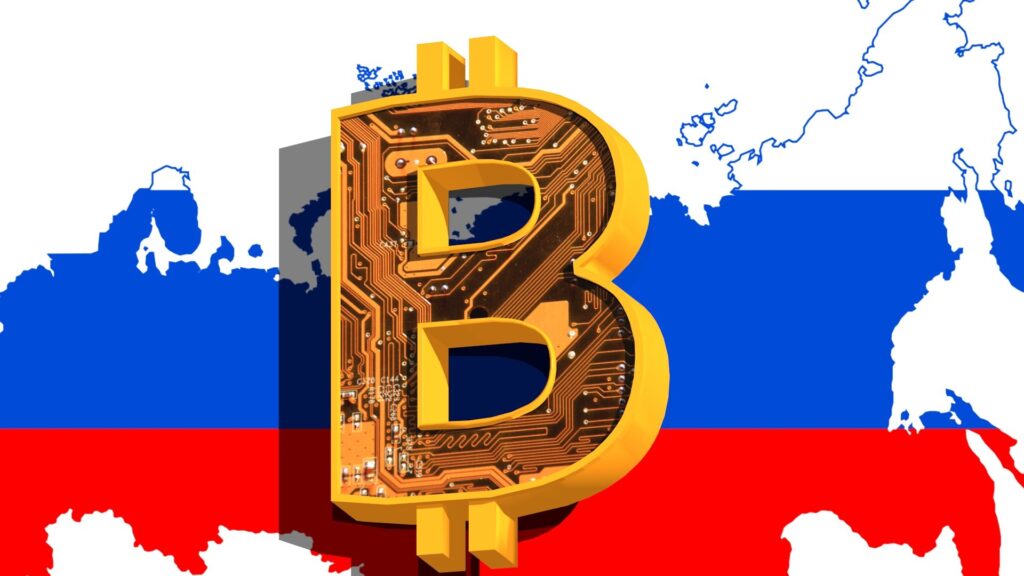
A recent decision by a large Russian bank has sent tremors through the global financial industry in the ever-changing environment of cryptocurrencies, where decentralized financial systems have challenged established banking conventions. This news, which marks the beginning of client crypto activity tracking, has ignited heated debates about privacy, legislation, and the future of digital currency. As the globe grapples with the implications of this decision, it is critical to examine the motivations, methodology, and effects of financial institutions’ monitoring of Bitcoin transactions.
Cryptocurrency, formerly thought to be the territory of computer specialists and early adopters, has suddenly entered the popular consciousness. Bitcoin, Ethereum, and many other digital assets have altered how people perceive and interact with money. While the appeal of decentralized currencies stems from their independence from political authority, recent initiatives by regulatory authorities worldwide have sought to integrate cryptocurrencies into current financial systems.
Against this context, a prominent Russian bank’s move to begin tracking consumer crypto activity constitutes a watershed moment, raising significant considerations about privacy, individual rights, and balancing financial oversight and personal freedom. This article delves into the complexities of the Russian bank’s decision to begin tracking customer cryptocurrency activities.
Furthermore, this crypto education analysis aims to shed light on the multifaceted aspects of this groundbreaking development by examining the historical context of cryptocurrency regulations in Russia, the technological intricacies of the tracking system, and its implications for individual users, the global cryptocurrency market, and the broader economy.
Table of Contents
Background of Cryptocurrency Regulations in Russia

Source: pymnts.com
To grasp the significance of the Russian bank’s decision to watch customer Bitcoin activity, it is necessary to follow the latest Defi news in the country. Russia’s position on digital assets has been markedly ambiguous, fluctuating between outright prohibition and cautious acceptance. Understanding the historical context helps to shed light on the incentives motivating the bank’s initiative.
Russia has battled with concerns such as money laundering, tax evasion, and the possible use of Bitcoin in criminal operations over the years. Global regulatory tightening has spurred the Russian government to take a more assertive stance, attempting to integrate cryptocurrencies into its financial ecosystem while assuring compliance and monitoring.
The Russian Bank’s Customer Crypto Activity Tracking System
The Russian bank’s development of a customer crypto activity tracking system is a complicated technological endeavor. The bank intends to thoroughly monitor individual Bitcoin transactions using advanced algorithms, artificial intelligence, and big data analytics.
The system can follow the flow of digital assets, identify potential dangers, and assure regulatory compliance using blockchain analysis and transaction pattern recognition. Understanding the technological complexities of this system provides a view into the future of financial surveillance, demonstrating modern technology’s potential in monitoring decentralized digital currencies.
Implications for Customers
Implementing a customer crypto activity tracking system poses severe privacy and personal freedom concerns. Individuals who engage in Bitcoin transactions value the anonymity of these transactions, which allows for financial privacy and liberty. Customers face the possibility that their financial activities may be inspected, potentially leading to inappropriate intrusion into their personal lives, with the introduction of monitoring measures.
This part investigates the legal and ethical implications of this surveillance, looking at how it intersects with fundamental rights to privacy and financial autonomy. Furthermore, it digs into the psychological impact on customers, examining how customers’ awareness of monitoring influences their behavior, faith in financial institutions, and adoption of digital assets.
Implications for the Global Cryptocurrency Market

Source: toptal.com
The worldwide cryptocurrency industry is interconnected and highly susceptible to legislative changes in critical economies. The Russian bank’s plan to monitor customer Bitcoin transactions has repercussions on international exchanges, influencing trade volumes, market liquidity, and investor confidence. Prices of cryptocurrencies may fluctuate as market participants react to the news, modifying their strategy depending on perceived risks and possibilities.
Furthermore, the reaction of other countries and their regulatory agencies is critical in establishing the future of the global Bitcoin market. Collaborative efforts or opposing tactics from different countries can stabilize or destabilize the market, affecting seasoned investors and newcomers.
Economic and Political Implications
The deployment of customer crypto activity tracking on a nationwide scale is economically and politically significant. The government can make educated decisions on economic policy by learning about citizens’ Bitcoin ownership and transactions. This information can be used for tax purposes, allowing the government to increase revenue streams.
Moreover, this endeavor also has political ramifications since public sentiment and potential protests need proper management. The government must balance economic interests and political stability, making this decision a tricky balancing act between financial control and public acceptance.
Challenges and Criticisms

Source: asiablockchainreview.com
Developing a comprehensive tracking system is fraught with difficulties and criticism. Such a surveillance device is fraught with technical difficulties, legal complexity, and ethical quandaries. Ensuring the tracking system’s accuracy, safeguarding client data from intrusions, and addressing concerns about false positives are all issues that the Russian bank must overcome.
Furthermore, privacy advocates, Bitcoin enthusiasts, and legal experts have expressed worries about individual rights, potential data misuse, and the erosion of financial privacy. These difficulties and criticisms highlight the difficulty of developing comprehensive monitoring measures in digital banking.
Conclusion
As Russian banks begin tracking consumer crypto activity, the ramifications reverberate throughout the financial world, igniting arguments about privacy, regulation, and the future of digital banking. This trend poses fundamental problems regarding the appropriate balance of regulatory control and individual liberties, pushing nations to reconsider the scope of financial surveillance.
While the technological improvements that enable such monitoring systems are impressive, they come at the expense of personal privacy, calling into question the underlying ideas of decentralization and financial autonomy upon which cryptocurrencies were founded. Consequently, as the world watches this watershed moment play out, it is critical to examine the implications and argue for a future where innovation coexists peacefully with individual rights, guaranteeing a balanced and equitable financial landscape for all.







